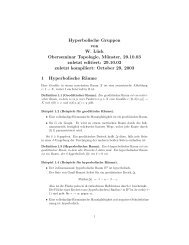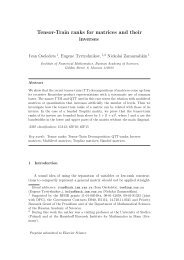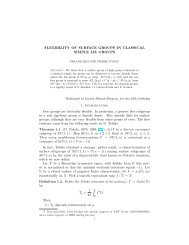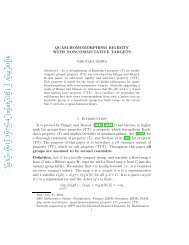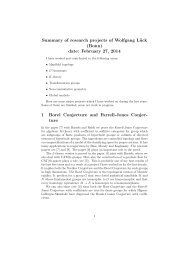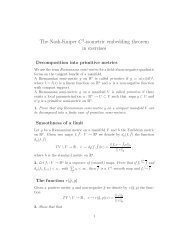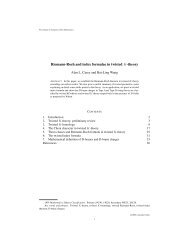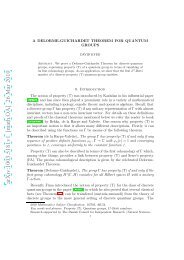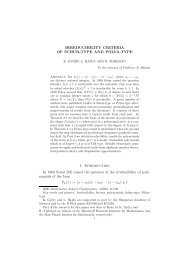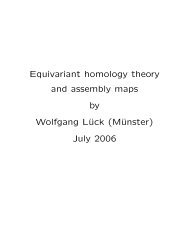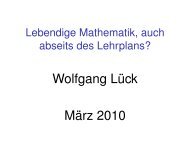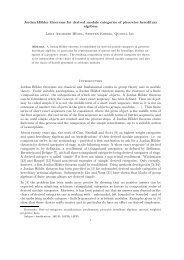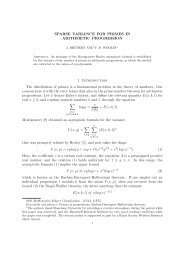Equivariant Cohomological Chern Characters
Equivariant Cohomological Chern Characters
Equivariant Cohomological Chern Characters
You also want an ePaper? Increase the reach of your titles
YUMPU automatically turns print PDFs into web optimized ePapers that Google loves.
Sometimes also the following axiom is required.• Disjoint union axiomLet∐{X i | i ∈ I} be a family of G-CW -complexes. Denote by j i : X i →i∈I X i the canonical inclusion. Then the map( )∏∐HG(j n i ): HGn ∼ =X i −→ ∏ HG(X n i )i∈Ii∈I i∈Iis bijective.If HG ∗ is defined or considered only for proper G-CW -pairs (X, A), we callit a proper G-cohomology theory HG ∗ with values in R-modules.The role of the disjoint union axiom is explained by the following result. Itsproof for non-equivariant cohomology theories (see for instance [16, 7.66 and7.67]) carries over directly to G-cohomology theories.Lemma 1.1. Let H ∗ G and K∗ Gbe (proper) G-cohomology theories. Then(a) Suppose that HG ∗ satisfies the disjoint union axiom. Then there existsfor every (proper) G-CW -pair (X, A) with an exhaustion by subcomplexesA = X −1 ⊆ X 0 ⊆ X 1 ⊆ . . . ⊆ ⋃ n≥−1 X n = X a natural short exactsequence0 → lim 1 n→∞H p−1G(X n∪A, A) → H p (X, A) → limn→∞ Hp G (X n∪A, A) → 0;(b) Let T ∗ : HG ∗ → K∗ G be a transformation of (proper) G-cohomology theories,i.e. a collection of natural transformations T n : HG n → Kn G of contravariantfunctors from the category of (proper) G-CW -pairs to the categoryof R-modules indexed by n ∈ Z which is compatible with the boundaryoperator associated to (proper) G-CW -pairs. Suppose that T n (G/H) isbijective for every (proper) homogeneous space G/H and n ∈ Z.Then T n (X, A): HG ∗ (X, A) → K∗ G (X, A) is bijective for all n ∈ Z providedthat (X, A) is relative finite or that both H ∗ and K ∗ satisfy the disjointunion axiom.Remark 1.2 (The disjoint union axiom is not compatible with −⊗ Z Q).Let H ∗ G be a G-cohomology theory with values in Z-modules. Then H∗ G ⊗ Z Q isa G-cohomology theory with values in Q-modules since Q is flat as Z-module.However, even if H ∗ satisfies the disjoint union axiom, H ∗ G ⊗ Z Q does not satisfythe disjoint union axiom since − ⊗ Z Q is not compatible with products overarbitrary index sets.4



